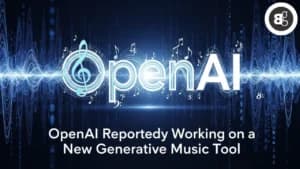OpenAI, Valued at $500 Billion, Reportedly Develops AI Music Tool with Juilliard Student Input

OpenAI is reportedly advancing into the generative music sector, developing a new AI tool capable of creating full songs from text or audio prompts. This strategic move positions the company, which boasts a valuation exceeding $500 billion, to compete directly with established players like Google’s Lyria and startups such as Suno and Udio. The initiative follows OpenAI's successful viral video tool, Sora, indicating a broader push to integrate music creation into its expanding creative ecosystem.
Sources familiar with the project indicate that OpenAI has been working with students from The Juilliard School to annotate musical scores, providing crucial training data for the AI model. While these reports highlight the involvement of individual students, The Juilliard School, the institution itself, has clarified that it is not officially collaborating with OpenAI on this project. The tool aims to generate diverse musical outputs, from guitar accompaniments for vocal tracks to comprehensive soundtracks for videos.
OpenAI's entry intensifies competition within the rapidly growing AI music market, which is projected to reach $1.5 billion by 2028. Existing platforms like Suno and Udio have already garnered significant attention, though they have also faced legal challenges regarding alleged copyright infringement from entities such as the Record Industry Association of America (RIAA). OpenAI's previous foray into music AI includes the Jukebox model, released before ChatGPT.
The development underscores OpenAI's strategy to diversify its AI offerings beyond text and image generation, potentially integrating the music tool with platforms like ChatGPT or Sora. This could empower creators, filmmakers, and musicians to generate professional-quality music without extensive traditional expertise. However, the project also raises critical questions about creative ownership and the future role of human musicians in an increasingly AI-driven landscape.